#glenn kaufman
Text
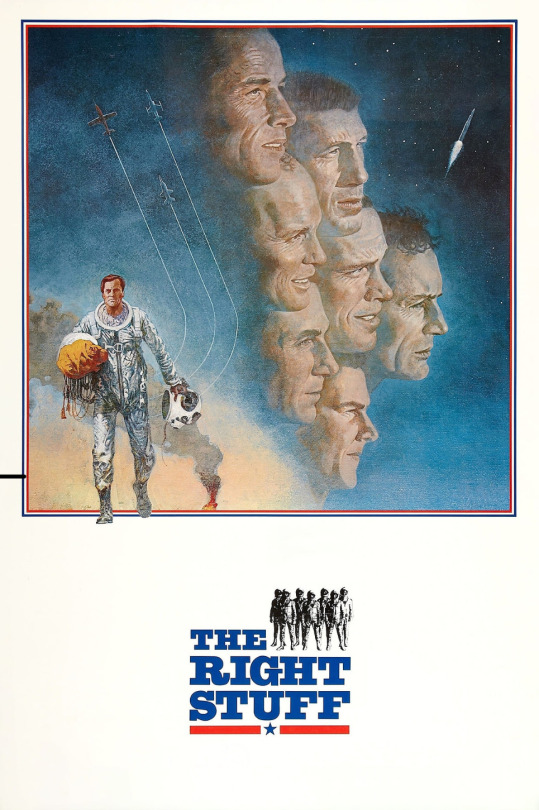
#movies#polls#the right stuff#the right stuff 1983#the right stuff movie#80s movies#philip kaufman#sam shepard#scott glenn#ed harris#dennis quaid#requested#have you seen this movie poll
43 notes
·
View notes
Text
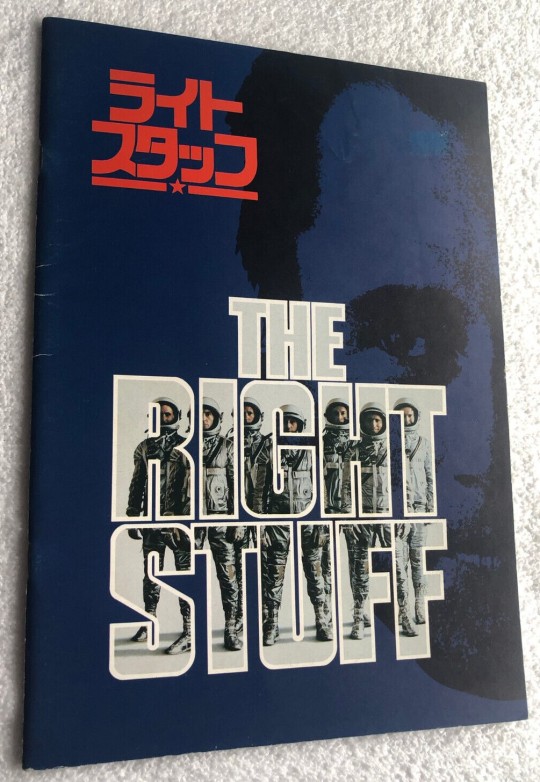



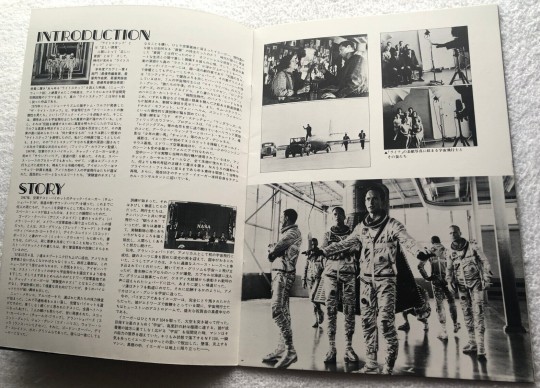

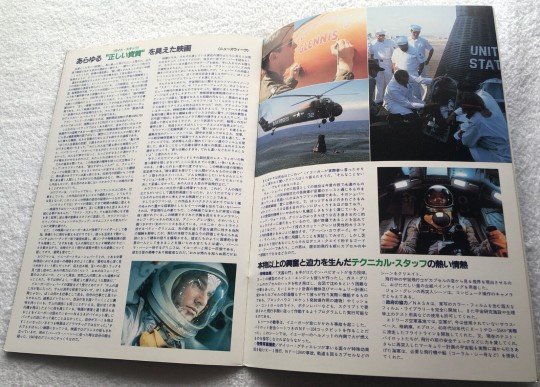

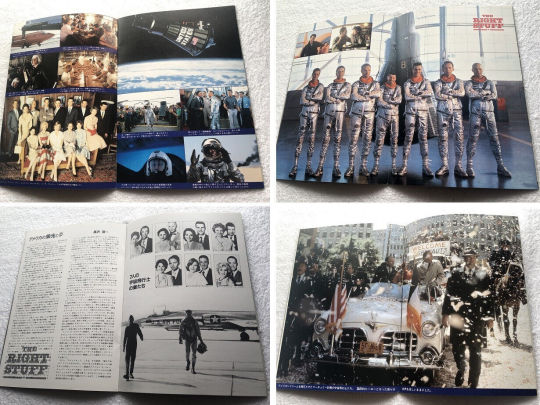
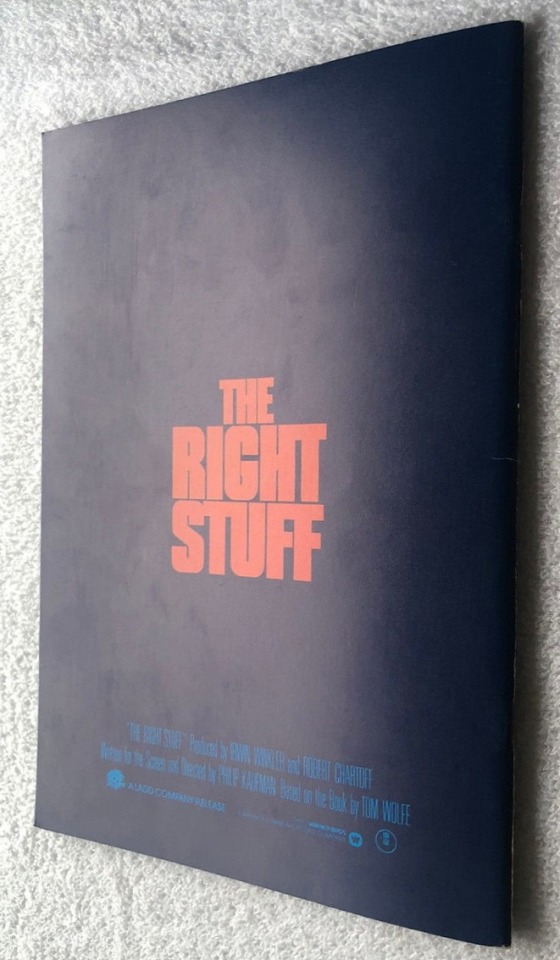
#The Right Stuff#Philip Kaufman#Tom Wolfe#Sam Shepard#Scott Glenn#Ed Harris#Dennis Quaid#Fred Ward#Lance Henriksen#80s
17 notes
·
View notes
Text
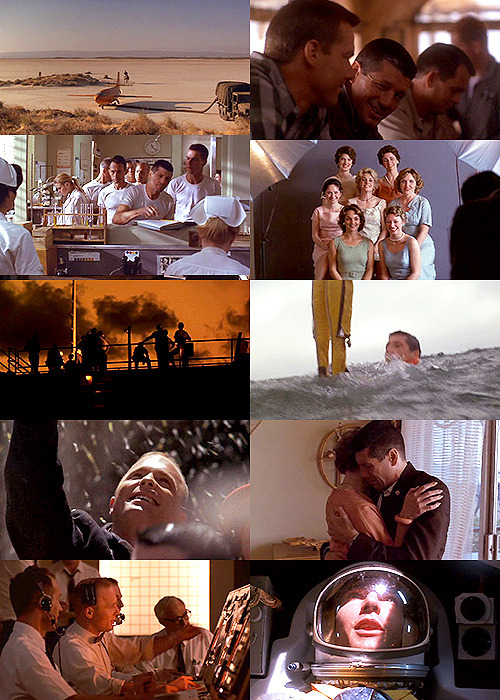
The Right Stuff (1983). The U.S. space program's development from the breaking of the sound barrier to selection of the Mercury 7 astronauts, from a group of test pilots with a more seat-of-the-pants approach than the program's more cautious engineers preferred.
Really wasn't expecting to enjoy this one as much as I did (especially given the run time), but god, it really works. Leaning into the brutal sacrifice and the lack of support in the aftermath, it still somehow never manages to lose a sense of wonder, discovery and connection. Plus some pretty amazing flight sequences - just, yes. Really enjoyed this one. 8/10.
#the right stuff#1983#Oscars 56#Nom: Picture#Nom: Supporting Actor#Nom: Score#Won: Score#Nom: Sound#Won: Sound#Nom: Sound Editing#Won: Sound Editing#Nom: Art Direction#Nom: Cinematography#Nom: Editing#Won: Editing#Philip Kaufman#tom wolfe#sam shepard#Scott Glenn#ed harris#dennis quaid#america#american#1940s#1950s#1960s#astronauts#drama#historical#8/10
6 notes
·
View notes
Text

Guardians of the Galaxy Vol. 3 - James Gunn and company stick the landing with a brilliant conclusion to Marvel's only coherent stand-alone trilogy of films. It genuinely feels strange that these are Marvel movies, since from the start they've largely felt like their own thing. Sure, to get caught up on this one you'll have to watch two Avengers movies, a Thor movie and a holiday special, and maybe even the silly animated "What If?" But otherwise, this series is mostly untouched by what's happened to The Avengers, and feels like it could have been a standalone series, like the FOX X-Men films, and the Sony Spider-Man films.
The cameo roles in this series are clearly done as a favor to James Gunn rather than to Marvel. Linda Cardellini has a voice role here, despite already having a role in Marvel films elsewhere, as do Judy Greer and Tara Strong (replacing the absent Miley Cyrus). And it's not hard to imagine some earlier Marvel film having some other role for the sort of actors Gunn casts in small roles, like Nathan Fillion, Ving Rhames, Michelle Yeoh, Peter Serafinowicz, Maria Bakalova, Djimon Hounsou, John C. Reilly, Glenn Close, Benicio Del Toro, Lee Pace, Alexis Denisof, Kevin Bacon, Seth Green, Sylvester Stallone, Don Johnson, and so on. He has a tendency to cast older star actors like Kurt Russell who could have populated a hypothetical 90s MCU, or even David Hasselhoff who actually did.
The Guardians films, outside of their Avengers crossovers, feel like a universe unto themselves. The tone is darker, and more violent, with a focus on comedy. At exactly one point in the film, Chris Pratt's Peter Quill, AKA Starlord, says fuck. At other points in the film, actors say "screw" when they clearly mean "fuck." Lloyd Kaufman turns up in these things. Most of the film is about torturing a raccoon, and it's full of strange creatures and body horror that sometimes seems antithetical to selling Happy Meal toys. The villain, Chukwudi Iwuji, as The High Evolutionary, is nastier than MCU villains tend to be, and there's no attempt to humanize him. Which is, to be clear, great. We like a real villain.
The visual style of the film is also distinctive. No muddy greys and browns here. There's bright colors and high contrast, and lots of interesting design. It is certainly in the running for the best-looking Marvel movie, and avoids the samey visual look of some other Marvel productions.
The cast, as ever, is stacked with actors who could have carried a film like this on their own. It's easy to take this cast for granted, but these are all stars, and the movie knows it. Zoe Saldana, who has almost casually starred in a large percentage of the most succesful movies ever made. Bradley Cooper, as the voice of Rocket, a CGI character who might be the real star here. Pom Klementieff and Dave Bautista, delightful as Mantis and Drax. Karen Gillan as Nebula, bringing a steely terminator's edge to a role far away from what she did in Doctor Who. Vin Diesel as Groot, even. Elizabeth Debicki returning as Ayesha.
Oh, and Chris Pratt as Peter Quill AKA Starlord. When we meet him here, he's been drinking away his sorrows over the loss of Gamora. Pratt is a controversial figure these days, due to his apparent right-wing beliefs, and at first there seems to be something wrong with Peter int his film. His trademark charm is entirely absent, at first, and he's not as funny a character in this as he's been previously. But that charm comes back, as Pratt tries to remind Gamora and the audience why we liked Peter Quill in the first place. He's not as big an asshole as he's been at times, and is almost likeable as he finds a certain peace in himself by the film's end.
Will Poulter turns up as Adam Warlock, a cosmic Marvel hero introduced as a secondary villain here, and manages to do something amusing with the character. As with the Nova Corps in the first film, this is a pretty significant Marvel character that James Gunn is using, apparently for his own purposes rather than due to any connection to the MCU. As with the Howard the Duck cameos, it feels like Gunn is doing his own thing. At one point Starlord appeared in the MCU Avengers animated shows without the personality that Chris Pratt gave him, and it felt very strange. Starlord is a very different character here than he was as a Space Cop in the comics, as are Yondu, Mantis, Groot, and so on.
Indeed these movies have very little to do with the Guardians of the Galaxy comics as they initially launched. The films are instead based, loosely, on the Guardians team that launched in the comics in 2008. That team included Adam Warlock and Phylla-Vell, a version of Captain Marvel who technically appears here as a child. But James Gunn has successfully put his own spin on these characters. Rocket Raccoon would probably have been the most recognizable character for old-timers, along with Adam Warlock, but he was never really a headliner until now. Nor was Groot, who was once an old Jack Kirby monster in the comics, and might as well be a different character now entirely.
Mantis, powerful as a C-tier Avenger in the comics, is a less powerful but more memorable character in these. She and Dave Bautista's Drax are socially awkward in different ways, and always doing something funny or interesting. This film also finds the dignity in these characters and sees a certain tragedy in the way they underestimate one another, suggesting that even though they're a memorable onscreen team, they need to move apart in order to grow as people. These films really care about these characters in a way which isn't cliched, telegraphed or predictable.
There's a sense of history here, that the journey these characters have gone on has meant something, over the course of three films, at least four other Marvel appearances and a holiday special. A photo of Stan Lee turns up, as does the actual Michael Rooker. It does have one thing in common with the Avengers films - an assurance that this is still the Guardians of the Galaxy even with a different lineup of characters, and that some of these characters will return.
It won't be the same, though, will it? It's hard to imagine another blockbuster film letting actors like Pom Klementieff be as memorably eccentric as they are here. This trilogy genuinely feels different and special. It had its own cast of characters, some of whom we saw very little of. (Sylvester Stallone makes only brief appearances, but a long history is implied every time.) It left me wanting more, but I'm glad that we got three solid movies with this cast, and that James Gunn - who was briefly fired due to some trolls on Twitter - got to return and do it right.
7 notes
·
View notes
Text
Hi yall, ready for a dream cast list (I'm broke and bored, how's that?):
(Another break time!!)
Voice Lists for my characters and why:
Bugs Bunny:
Description: I wanted bugs to sound more high-pitched, snarky bugs. One that sounded like Jeff Bergmans version, only I wanted a teenage version, because their teens in my version.
Potential (Dream Cast: means who I wish I could afford) VA's:
- Billy West
- Eric Bauza
- Jeff Bergman

Daffy Duck:
Description: I love Daffy, specifically his more funny roles, like Back in Action (his most beautiful representation) or TLTS (The Looney Tunes Show), specifically because he sounds like a teenager.

Potential Dream Cast Va's
- Samuel Khouth
- Dee Bradley Baker
- Eric Bauza
Lola Bunny:
Description: She's had a lot of good VA's in her heyday, but I specifically liked Space Jams' first and second performance, She was certainly something.

Potential Dream Cast Va's:
- Rachel Ramras
- Zendaya
- Kath Soucie
Tina Russo:
Description: I wanted a sassy, yet teen like depiction, her voice actors were good, nothing wrong, except too mature off a voice, which is good, yet not quite what I'm looking for, so I found some others, and one of her own.

Potential Dream Cast Va's:
- Jennifer Esposito
- Rachael Lillis
- Erica Lindbeck
Porky Pig:
Description: This pudgy pig already sounds solid, ain't no use fixin him, that's why we love his voice actor, (he was the only alive one I could find, R.I.P to his other Va's)

Potential Dream Cast Va's:
- Bob Bergen
Cuphead/X-18+
Description: This Techno Tryhard, unfortunately, can't have an official VA of his own because I don't think he has one (if he does, let me know), so I roped in some badass voice actors.
Potential Dream Cast Va's for Cuphead:
- James Arnold Taylor
- David Kaufman
- Zach Aguilar
Potential Dream Cast Va's for X-18+:
- Michelle Marie
- Kimiko Glenn
- Cristina Valenzuela
That's all yall for this chapter, see you soon!
(What do you all think????)

0 notes
Text
NASA’s SERT II: 'A Genuine Space Success Story’
New Post has been published on https://sunalei.org/news/nasas-sert-ii-a-genuine-space-success-story/
NASA’s SERT II: 'A Genuine Space Success Story’
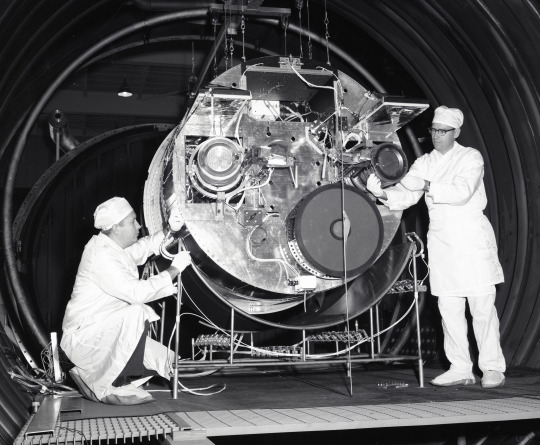
“A genuine space success story,” is how Experiments Manager William Kerslake described NASA’s second Space Electric Rocket Test (SERT II), the first long-duration operation of ion thrusters in space. SERT II provided researchers with data for years beyond its expected lifetime and was a rare example of an entire mission – including the launch, propulsion system, spacecraft, and control center – being handled by one organization: NASA’s Lewis Research Center in Cleveland (today, NASA Glenn).
The concept of electric propulsion thrusters dates back to the early 20th century, but because they must operate in a vacuum, there was no practical application for these systems until the space program decades later. In the late 1950s, researchers at NASA Lewis began investigating types of electric propulsion and analyzing missions that could use these systems. They produce low amounts of thrust by creating and accelerating small particles at high velocities, and over time, can accelerate spacecraft at very high rates of speed. Their ability to operate continuously for years at a time with little propellant makes them ideal for long-duration missions or keeping satellites in orbit.
This work was expanded in the early 1960s with the creation of Lewis’ Electromagnetic Propulsion Division and the construction of large vacuum facilities, including the Electric Propulsion and Power Laboratory (EPPL). Lewis engineer Harold Kaufman’s electron bombardment ion engine, which used liquid mercury as its propellant, was the most promising option. While Kaufman’s thruster was undergoing extensive testing in the EPPL tanks, Lewis engineers began developing a spacecraft to test the thruster. During the 50-minute suborbital SERT I flight on July 20, 1964, the Kaufman thruster became the first ion engine to operate in space.
Lewis continued improving the thruster system, and in August 1966 received approval for SERT II. Researchers wanted to verify the thrusters could operate for longer durations in space, determine their effect on other spacecraft systems, and measure the degradation of solar arrays over time.
The center began simultaneous development of the SERT II ion thruster system and the spacecraft that would place it into orbit: a Thorad-Agena rocket. SERT II had two 15-centimeter diameter electron bombardment thrusters affixed to the back end and a 5-by-40 foot solar array, the largest ever flown by NASA at that time, at the other end.
After a series of tests in the EPPL, SERT II blasted off on February 3, 1970. Project Manager Raymond Rulis called the launch “one of the smoothest operations I’ve seen.” SERT II was placed into a circular polar orbit that provided its solar arrays with the continuous sunlight required to power its thrusters and electronic systems.
On February 14, 1970, Lewis engineers activated the first thruster, beginning its six-month operational test. Three weeks later, operators shut the thruster down just before the vehicle passed through the path of a solar eclipse. It was restarted without issue afterwards and continued operation as the spacecraft encountered the eclipse a second time later that day.
The thruster operated successfully for five months until an electrical short in the grid caused it to fail on July 22, 1970. Two days later, the second thruster was activated. It operated smoothly for three-and-a-half months until a similar short occurred in mid-October. Though the SERT II thrusters failed to meet their six-month objectives, they did operate for extended periods, confirming data obtained in Lewis’ vacuum tanks.
The mission continued when Lewis engineers reactivated SERT II in 1973 to demonstrate cathode restarting, and the following year, they resolved an electrical short in one of the thrusters. During periods of intermittent sunlight, operators demonstrated restarting the thruster with less than an hour of power available. SERT II’s return to an orbit in continuous sunlight in 1979 provided Lewis researchers the opportunity to conduct over 500 restarts. They operated the thruster for 18,000 hours before the propellant ran out in the spring of 1981.
Over eleven years, SERT II provided data on hundreds of thruster restarts, restarts after shutdowns as long as 18 months, ion beam neutralization of one thruster by the other, and discovery of a new plasma thrust mode. SERT II also verified that thruster operation had no harmful impact on spacecraft and solar arrays.
Still, SERT II continued to be an asset to NASA researchers. In the late 1980s, Lewis engineers realized that an auxiliary experiment on SERT II that analyzed the effect of micrometeoroids on solar mirrors could be beneficial to research on solar dynamic systems to power space stations. During six months in sunlight in 1990, the Lewis team determined that after 20 years in orbit, there was no degradation of the solar mirror’s optical properties.
Many technological components of the SERT II thruster system were incorporated into subsequent generations of ion thrusters. By the time the mission was terminated, Lewis was already ground testing thrusters twice the size of those on SERT II. The center has continued to lead NASA’s electric propulsion efforts, developing an array of technologies, including the NEXT-C thrusters that powered the Deep Space 1 and Dawn spacecraft. In support of the agency’s Artemis missions, NASA Glenn recently tested the thrusters that will power Gateway, NASA’s future lunar space station.
Additional Information:
Development and Flight History of SERT II Spacecraft
NASA Glenn Solar Electric Propulsion
0 notes
Text
Top Favorite Aviation Movies

Below is a list of my favorite movies themed around aviation:
TOP FAVORITE AVIATION MOVIES
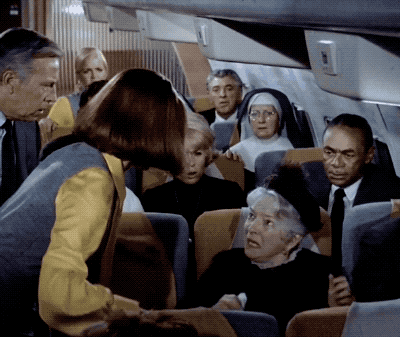
1. "Airport" (1970) - Burt Lancaster and Dean Martin starred in this adaptation of Arthur Hailey's 1968 novel about the discovery of a bomber aboard a Chicago-to-Rome flight. George Seaton directed.

2. "Those Magnificent Men in Their Flying Machines" (1965) - Ken Annakin wrote and directed this all-star comedy about a 1910 air race from London to Paris. Stuart Whitman, Sarah Miles and James Fox starred.

3. "Apollo 13 (1995) - Ron Howard directed this adaptation of "Lost Moon: The Perilous Voyage of Apollo 13", Jim Lovell and Jeffrey Kluger's 1994 book about NASA's ill-fated fifth mission to the moon. Tom Hanks, Gary Sinese and Kathleen Quinlan starred.

4. "The Rocketeer" (1991) - Bill Campbell starred in this adaptation of Dave Steven's comic book about a stunt pilot-turned-costumed hero battling Nazi agents in 1938 Los Angeles. Directed by Joe Johnston, Alan Arkin, Timothy Dalton and Jennifer Connelly co-starred.

5. "The Right Stuff" (1983) - Philip Kaufman directed this adaptation of Tom Wolfe's 1979 book about Project Mercury, NASA's first program of test pilots-turned-astronauts. Ed Harris, Dennis Quaid, Fred Ward and Scott Glenn starred.

6. "The Aviator" (2004) - Martin Scorsese directed this adaptation of "Howard Hughes: The Secret Life", the 1993 book about Howard Hughes' life as an aviator and film producer between 1927 and 1947. Leonardo DiCaprio starred.

7. "Death in the Clouds" (1992) - David Suchet starred as Hercule Poirot in this television adaptation of Agatha Christie's 1935 novel. Stephen Whittaker directed.

8. "Pearl Harbor" (2001) - Michael Bay directed this fictionalized account of the December 1941 attack upon the Pearl Harbor Naval Base. The movie starred Ben Affleck, Kate Beckinsale and Josh Harnett.

9. "Flight" (2012) - Denzel Washington starred in this movie about an alcoholic airline pilot who miraculously crash-lands his plane after a mechanical failure. Directed by Robert Zemeckis, Don Cheadle and Kelly Reilly co-starred.
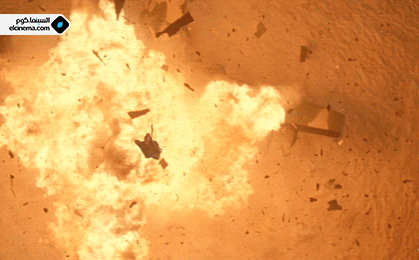
10. "Die Hard 2: Die Harder" (1990) - Bruce Willis starred as John McClane in this adaptation of Walter Wager's 1987 novel and sequel to the 1988 movie, "Die Hard". Renny Harlin directed.

#aviation movies#airport#airport 1970#dean martin#burt lancaster#jacqueline bisset#jean seberg#helen hayes#those magnificent men in their flying machines#ken annakin#stuart whitman#sarah miles#james fox#apollo 13#apollo 13 1995#ron howard#tom hanks#gary sinise#bill paxton#kevin bacon#kathleen quinlan#ed harris#the rocketeer#the rocketeer 1991#walt disney studios#touchstone pictures#cliff secord#bill campbell#jennifer connelly#timothy dalton
1 note
·
View note
Photo
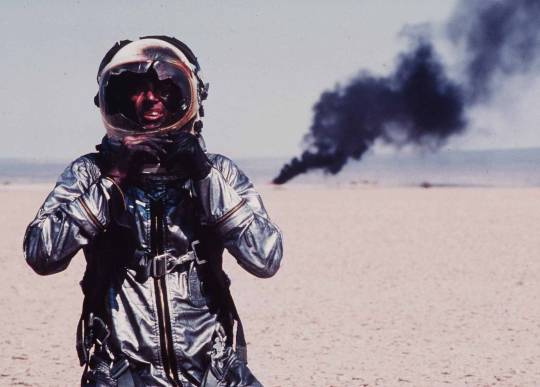
Sam Shepard in The Right Stuff (Philip Kaufman, 1983)
Cast: Sam Shepard, Fred Ward, Dennis Quaid, Ed Harris, Scott Glenn, Lance Henriksen, Scott Paulin, Barbara Hershey, Veronica Cartwright, Jane Dornacker, Kim Stanley, Pamela Reed, Donald Moffat, Levon Helm, Mary Jo Deschanel, Jeff Goldblum, Harry Shearer, Scott Wilson, Kathy Baker. Screenplay: Philip Kaufman, based on a book by Tom Wolfe. Cinematography: Caleb Deschanel. Production design: Geoffrey Kirkland. Film editing: Glenn Farr, Lisa Fruchtman, Tom Rolf, Stephen A. Rotter, Douglas Stewart. Music: Bill Conti.
With its brightly irreverent attitude toward subject matter that typically brought out pious patriotism in Americans, d MoffaThe Right Stuff feels more like a film of the 1970s than of the Reagan '80s, which may be why it was a box-office disappointment. It remains true that some of the parts of the film -- the caricatures of the German scientists, the publicists, the press, and politicians like Lyndon Johnson (Donald Moffat) -- don't fit snugly with the genuine heroism shown by the astronauts and test pilot. But that's because writer-director Philip Kaufman dared to assume a point of view on the material that was fresh and unconventional -- a rarity in American film of the '80s. Some of the tone of the film can be found in its source, Tom Wolfe's book, which was designed as a corrective to the "official story" of the Mercury 7 that was provided by Life magazine. Instead of squeaky clean superbeings devoted to wife and family, the astronauts were just human beings, frequently raunchy, irreverent, and more than a little inclined to step out of marital bounds. The film's great glory is its all-star cast (though few of the actors in it were stars before it was made), with particularly good work coming from Sam Shepard, who received a supporting actor Oscar nomination as Chuck Yeager, the test pilot that the astronauts wanted to be, even as NASA and the scientists wanted them just to be glorified lab rats, plus Scott Glenn as Alan Shepard, Ed Harris as John Glenn, Dennis Quaid as Gordon Cooper, and Fred Ward as Gus Grissom. There is similar strength in the female cast, particularly Barbara Hershey as Glennis Yeager, Veronica Cartwright as Betty Grissom, Pamela Reed as Trudy Cooper, and Mary Jo Deschanel as the publicity-shy Annie Glenn, whose embarrassment at her stammer leads to a wonderfully satisfying standoff against an increasingly irate LBJ -- a man whose whims were seldom ignored. Deschanel's husband, Caleb, is the film's cinematographer. (Yes, they are the parents of Zooey Deschanel.) The movie was nominated for eight Academy Awards and won four: for sound, film editing, sound effects editing, and Bill Conti's score.
1 note
·
View note
Text
1 note
·
View note
Text
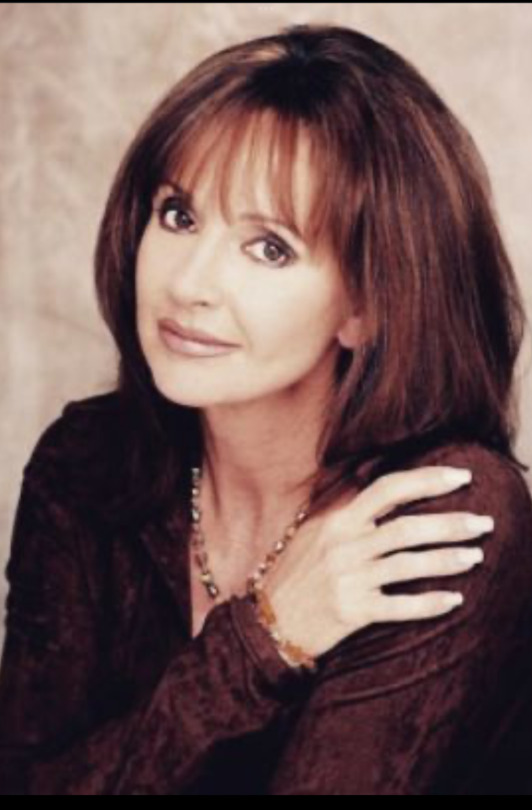
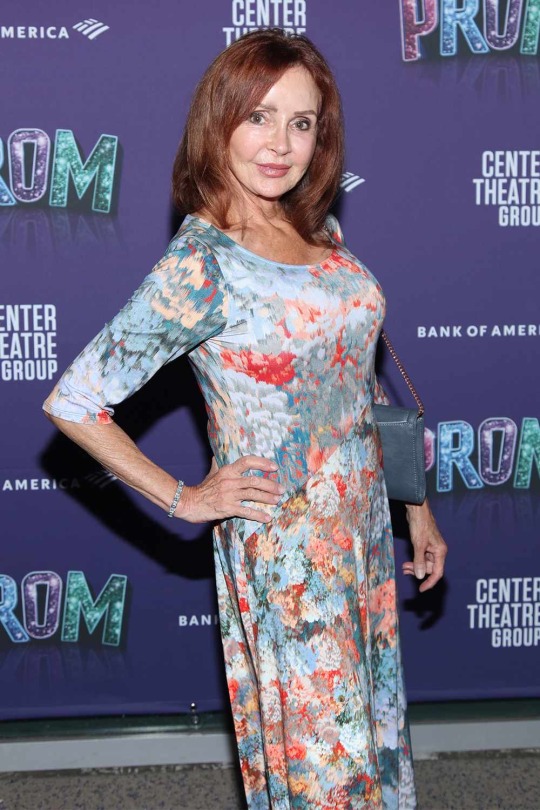
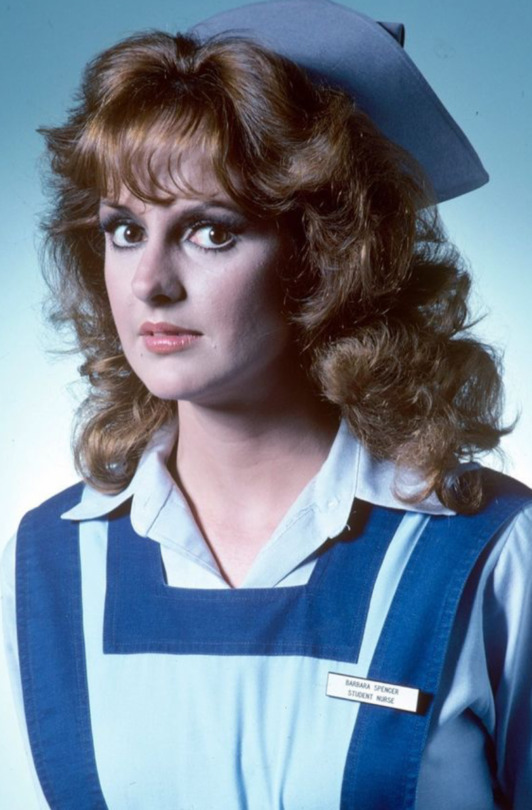
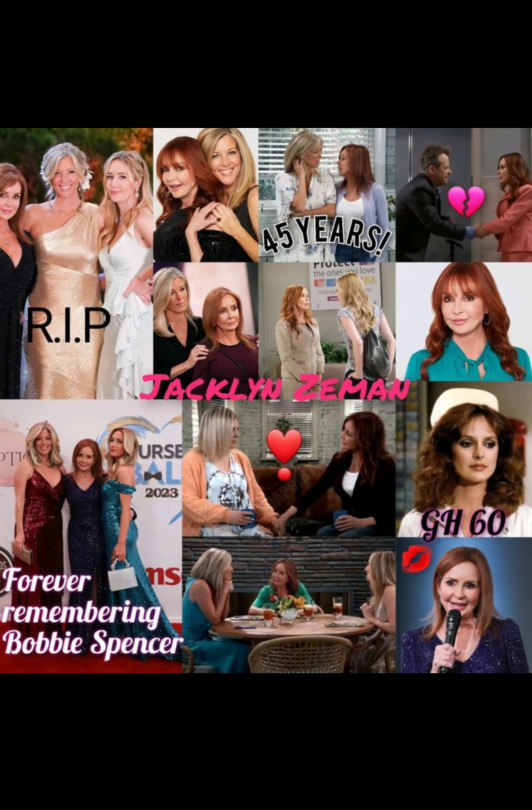
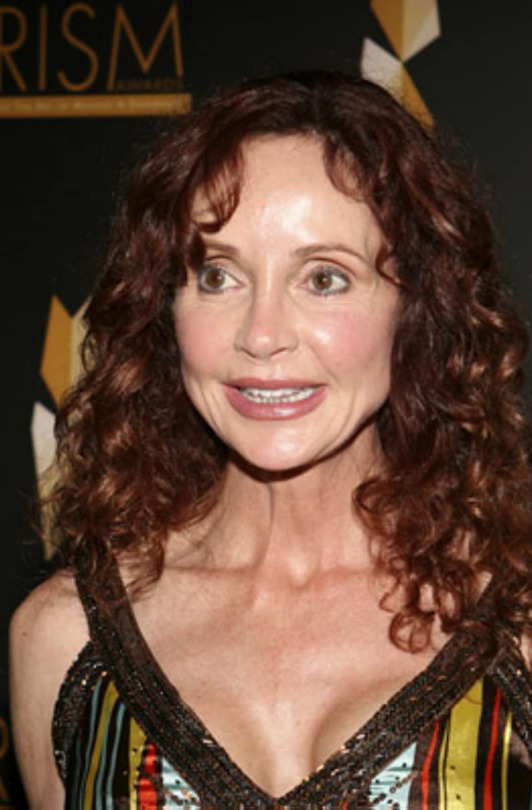
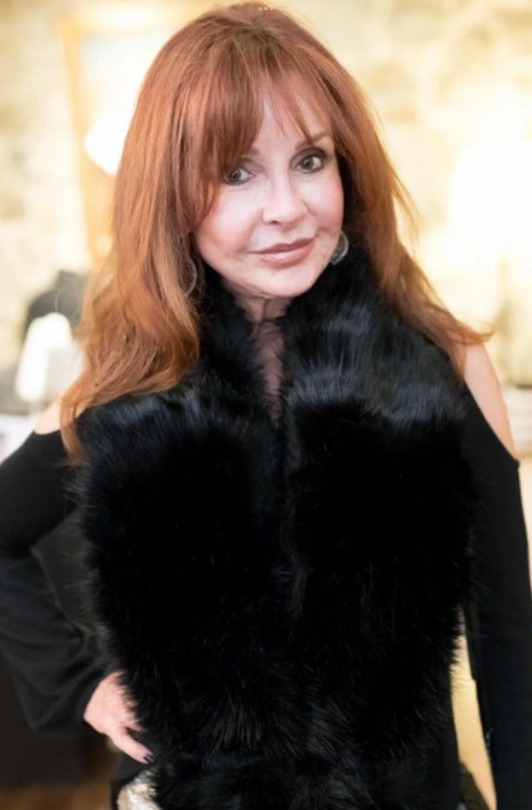
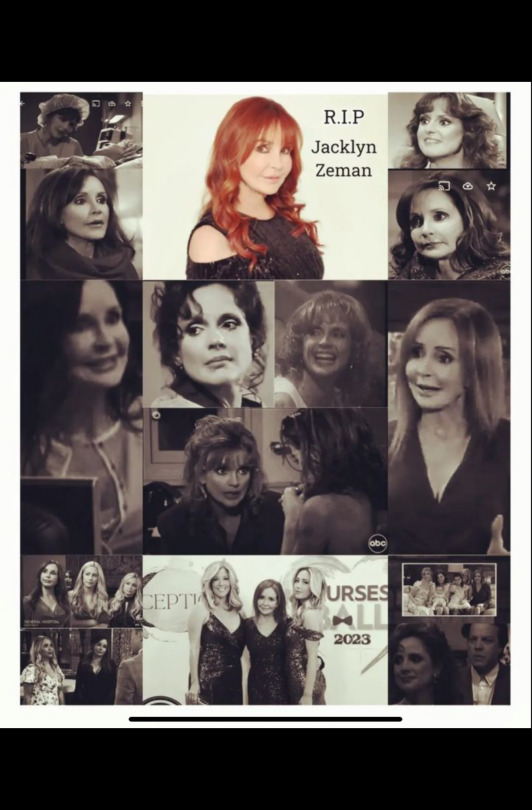
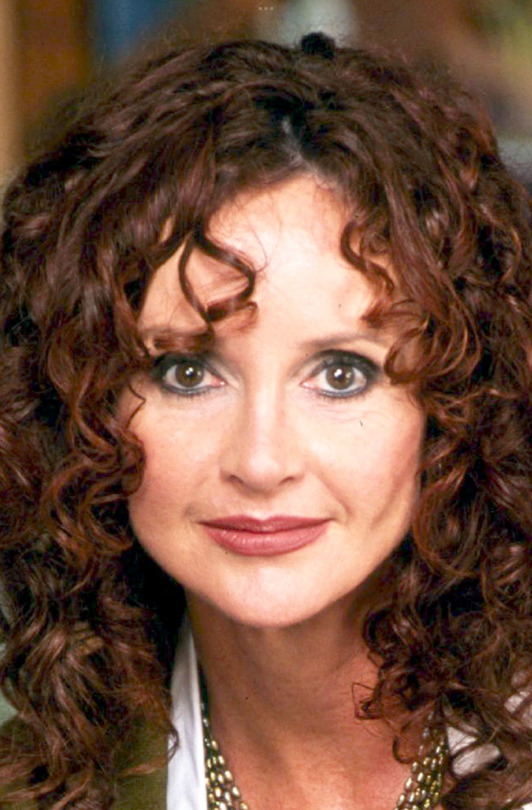
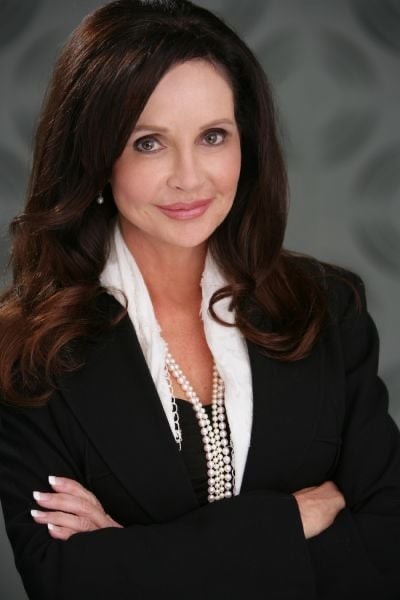
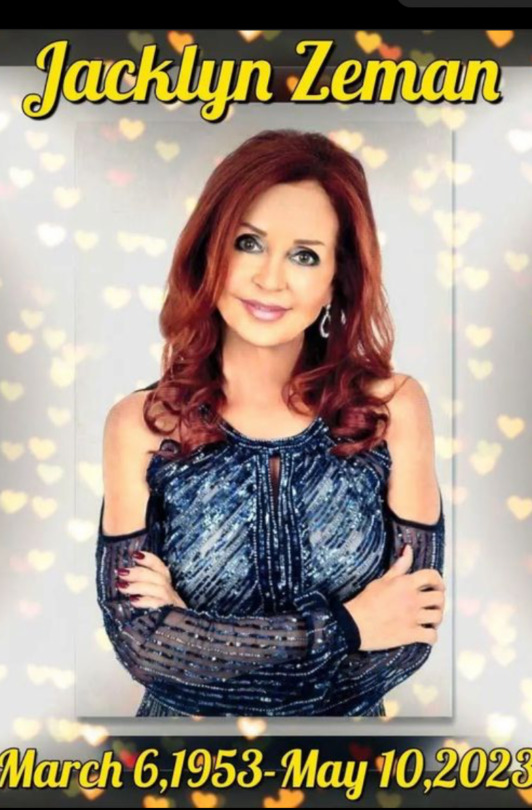
Saddened by the Passing of Actress Jacklyn Zeman (1953-2023)
Jacklyn Zeman, who became one of the most recognizable actors on daytime television during 45 years of playing nurse Bobbie Spencer on ABC’s “General Hospital,” has died.
She was 70.
Zeman died of cancer.
Zeman joined “General Hospital” in 1977 as Barbara Jean, who went by Bobbie, and was the feisty younger sister of Anthony Geary’s Luke Spencer.
Born March 6, 1953, in Englewood, New Jersey, Zeman discovered a love for dance as a child, and as a teen began acting in school productions. She worked in Venezuela as a dancer after high school and was pre-med at New York University but dropped out when she was offered a contract at the ABC soap “One Life to Live” after originally being hired for just three days of work.
On “One Life,” she played Lana McClain for a little more than one year and then left for “General Hospital.” Zeman was nominated for four Daytime Emmy Awards for her work on the show.
Outside soap operas, Zeman worked as a Playboy Bunny to help pay for college and also acted in commercials. She had a role in 1982’s “National Lampoon’s Class Reunion” and appeared in a string of TV movies, including the ABC Afterschool Special “Montana Crossroads” in 1993. She also had a series regular role as Sofia Madison in the crime drama series “The Bay,” earning her a fifth Emmy Award nomination.
Zeman last’s appearance on “General Hospital” was in April for the wedding of her character’s grandson.
She was married and divorced three times, first to Glenn Gordon and later to Steve Gribbin and disc jockey Murray “Murray the K” Kaufman. Zeman’s survivors include two daughters, Cassidy and Lacey, from her marriage to Gordon.
My Condolences to her Family and Friends.
#R.I.P. 😔🙏🥀
0 notes
Text
CANCEL
https://www.latimes.com/entertainment-arts/music/story/2021-07-26/jackson-browne-phoebe-bridgers-downhill-from-everywhere
Jackson Browne on cancel culture, his ‘shelf life’ and how to survive rush hour in L.A.
BY AMY KAUFMAN, JULY 26, 2021
Jackson Browne knows people think he’s past his prime.
Or “way out over my due date,” as he puts it on his new album.
“I’m talking about shelf life,” he says. “But I think a lot of stuff is still good after the date that’s printed on the package.”
At 72, the musician is grappling with what his life will amount to — that’s really what the lyric is about, he says: “An admission that you’re supposed to have settled stuff by this time.”
It’s not that he had a vision for what life in his 70s would be like; he’s never looked that far into the future. But he has always been a self-reflective sort, unafraid to question whether he’s squeezing all of the juice out of the fruit.
Even one of his first hits, “Doctor, My Eyes” — released in the midst of the Vietnam War — told the story of a man puzzling over how to digest the hardships of the world.
Browne’s eyes are still wide open on “Downhill From Everywhere,”
the Rock & Roll Hall of Fame inductee’s first collection of new music in six years. On the album, the singer-songwriter takes typically forthright stands on ocean pollution, immigration rights and gay marriage. Though he grows somber when he discusses current events, Browne also seems to have softened with age — exuding less an obstinate attitude than an equable one.
In the late ’60s and ’70s, Browne established himself as
one of Laurel Canyon’s preeminent songwriters with now-standards like “These Days” (written when he was 16), “Take It Easy,” co-written with the Eagles’ Glenn Frey and “Running on Empty.”
Back-to-back smash albums “The Pretender” and “Running on Empty” made him a full-fledged rock star, but gradually he would pivot his music and career away from pop philosophy and toward the political. He organized “No Nukes” benefit concerts against nuclear weapons and nuclear energy alongside Graham Nash and Bonnie Raitt in 1979 and condemned U.S. policy in Central America on his 1986 album “Lives in the Balance.”
Browne still champions numerous causes; he was performing at a fundraiser for the charity God’s Love We Deliver in March 2020 when he became one of the first stars to contract COVID-19.
He likes experimental theater — he’s wearing a shirt from
Tim Robbins’ Culver City-based the Actors’ Gang nonprofit — and seeing live music with some of the young artists he’s befriended, like:
Dawes, Jenny Lewis, Inara George and Phoebe Bridgers.
(Earlier this year, Bridgers enlisted Browne to duet with her on a new version of her song “Kyoto,” and she in turn then appeared in a music video for his song “My Cleveland Heart.”)
Browne, who lives in Los Angeles’ Mid-City
with his longtime partner, Dianna Cohen, has two adult children from previous marriages.
This week, he heads out on a three-month tour with James Taylor that will stop in Anaheim in October. The Times spoke with Browne at his Santa Monica recording studio, Groove Masters, where Bob Dylan, Frank Ocean and David Crosby have made music.
-=-=-=-=-=-=-=-=-=-=-=-=-=-=-=-
What made you decide to record an album after six years?
The way you pose the question presupposes that there’s getting ready. I’ve had a studio for 30 years (since 1991). I’m always doing something. It’s more like there’s a residue you gather or a condensation that gathers.
You once said that your standards plague you. Do you still feel that way?
I think I was talking about the fact that it’s not a good idea to try to write a song as good as some other song you’ve already written. Because when you wrote that song that you thought so highly of, you weren’t holding it up to some other standard; you were just trying to write something new.
Look, I’ve got a high opinion of some of my songs, but to write something new you have to forget everything you’ve ever done.
You sing on this album about being concerned for the future your children will inherit. What scares you?
I am in a state of grief for the world that my kids are inheriting — my grandson (son of Ryan). Elephants and tigers are in danger. The ocean’s got dead spots in it. The reefs are dying. The natural world’s ability to bounce back from what we’ve done is an existential threat. ... We’ve got these electric cars, so why don’t more people have electric cars? Why don’t we phase out fossil fuels? They won’t until they’ve sold us every last thing they have. I don’t get to talk about this stuff very much in conversation. So for me, the challenge is to write a song that people don’t mind hearing and that helps galvanize some sort of feelings or helps them find some resolve.
When you started more politically themed music in the 1980s, were you worried about losing your audience?
I know it was considered problematic by some people in the music industry to talk about politics. But they were never my people. You hear people like, ‘Oh, he’s losing an enormous part of his audience by talking about this.’ They’re talking about sales and s— like that. That never mattered to me anyway. Please.
It didn’t matter to you at all?
When you sing about stuff that nobody knows anything about, the recognition for what you’re doing is gonna drop off. At the same time, a bunch of other things were happening that are probably more responsible for the popularity declining, like punk music.
You’re just not 25 (in 1973), now you’re 33 (in 1981), and there’s a completely different aesthetic going on and an attitude about everything that’s come before, rightfully or wrongfully dismissing you.
Many of your reviews cite you as being a really serious person. Do you think that’s fair?
I’ve had people remark on that to me, like, “Oh, I expect you to come in with sheaths of newspapers and notes and stuff.” There was this great remark that Don Was made. He was asked about a song that was political, and he said, “Oh yeah, we’re kind of political. Well, we’re not like Jackson Browne, where we’re with a pointer and talking about troop movements.”
It was a funny thing to say.
I was playing at a Christmas show in Asheville a few years ago, and I sang this song about war called “The Drums of War.” Later, I was talking to one of the guys on the show and said, “Maybe I kind of sandbagged these folks. You think I shouldn’t have sang them a song about the war [at] Christmas?” He said, “People know you, Jackson. They’re not gonna be shocked that you sing a song about the war.”
How do you get your news?
I’m just kind of old school: I read. I can’t stand television. Even calling it television shows I come from another century. There are newsletters I get and books, and I really like radio. KPFK Pacifica.
In L.A., I try to drive when my programs are on.
I don’t mind rush hour because the Tim Ferriss program is probably on, and it’s a good way to spend an hour.
You’ve developed relationships with a lot of younger artists. How did those friendships start?
That’s the music that really moves me. I feel really lucky to know all these people, and I guess I know them because I go to their shows. I met Phoebe at a party, but I hadn’t heard her play. It was a birthday party for [Australian singer-songwriter] Tal Wilkenfeld at an escape room. I was sure we were gonna escape, but we didn’t make it. Funnily enough, the room was about a pandemic. But it was hard to figure out. But later, when I heard her music, I went, “That’s Phoebe. That’s that girl I met. Holy s—.”
What did you like about it?
If I want to use the word “gratitude” in a sentence, it would be about artists like Taylor [Goldsmith, from Dawes] and Phoebe, who are bringing an emotional literacy and prowess with words to rock lyrics again. It hasn’t been absent; Lucinda Williams and Randy Newman have been there all along. But when you see somebody young applying themselves to those kinds of skills, it’s encouraging because it makes you think that is on the rise and that a more youthful segment of the population will be exposed to that.
Did any musicians serve as mentors to you when you were young?
David Crosby agreed to sing on my first record. He absolutely showed me how to record — how to multitrack vocals. He praised me to others and to myself, and that was really important. I feel a great debt of gratitude to David.
But you no longer speak to him?
That’s true. He said nobody he’s ever made music with will talk to him anymore. I would point out that his son makes music with him, and that’s really what’s at the heart of his productivity right now, is his great relationship with his son. I don’t really want to go into the details of why we’re not talking.
There was a good documentary made about him recently. Do you ever think about being a part of a film like that or writing a memoir?
I’ve thought about it because it’s been proposed. I may eventually not be good for much else, so I’ll leave myself enough time to sound off about stuff. I kind of feel like I don’t know anything.
I’m sure people would love to hear your stories — and about dating the likes of Nico, Joni Mitchell and Daryl Hannah. Carly Simon wrote a really good memoir about her marriage to James Taylor.
Who’s interested in that though? Who’s interested in Carly talking about James?
Uh, me? A lot of people!
I’m not very interested in that stuff. Have you read Linda’s [Ronstadt] book? Now that’s a good book. It’s about music. Yes! People don’t want to know about Jerry Brown and Mick Jagger and all of the people Linda had relationships with. Besides, you have to be a really good writer. And I can’t even write a postcard.
What are your thoughts on cancel culture?
I’m not very aware of cancel culture, because I’m basically helpless about social media and the kind of quick, fast-breaking news about s—. That washes over me. I’m concerned that “canceled” has become a reflexive thing. My version of cancel culture is just turn it off or change the channel.
To use an example involving people you know, Phoebe Bridgers and Mandy Moore — they were part of an investigation alleging that Ryan Adams was emotionally and verbally abusive. As a result, some say he should be canceled.
I think powerful men have been taking advantage of their status with women and that should stop. ... I think it made a big impression on everybody that [Bridgers and Moore] came forth and talked about it. That’s their right and their responsibility to tell the truth and why we like their work.
I worry about [cancel culture] though because there are examples of actors, supposedly, who I think are tremendously gifted and I don’t know what all they did. ... In some cases, it sounds really bad. In some cases, it sounds like, really? They patted somebody on the butt and so we should not see this person’s movies now? I don’t know. I’m not just trying to wriggle out of your question. I’m just trying to say that I’m actually not a good person to [talk about this] because I’m so uninterested in that stuff. I wouldn’t watch the O.J. trial.
What are you hoping your fans will take away from your new album?
You mean, you want me to boil it down? It’s not for me to say. There are no CliffsNotes for these songs. I’m not that self-conscious. I’m not worried about what people are gonna think about me. This is not an ad for myself. This is a collection of songs with me really trying to express myself.
So you don’t think about how you’ve evolved musically?
Honestly? The things that I think about are trying to sing in tune and making the song sound good.
Why keep making new music?
[Laughs] I just thought that this morning. There’s so many other things going on. What could possibly be a more glacial f—ing process than writing a song about climate change, for instance? What it gives me is a song to sing that can be sung on an occasion, and sometimes that occasion is where people have gathered together to do something about something. I like the way I just said that, because it’s very all-inclusive. It may sound like I’m being vague, but I mean it gives me a song I can sing that reaffirms what I think.
Amy Kaufman is a columnist at the Los Angeles Times, where she writes a monthly A-1 column, “For Real With Amy Kaufman.” The series examines the lives of icons, underdogs and rising stars to find out who the people are shaping our culture — for real. Since joining The Times in 2009, she has profiled hundreds of influential figures, including Stevie Nicks, Kevin Hart, Joan Rivers, Michael B. Jordan and Lady Gaga. She also works on investigations and was part of the 2022 Pulitzer Prize finalist team that covered the tragic shooting on the “Rust” film set. Her work often shines a light on the darker side of the entertainment business, and she has uncovered misconduct allegations against Randall Emmett, Russell Simmons and Chris D’Elia. In 2018, her book “Bachelor Nation: Inside the World of America’s Favorite Guilty Pleasure” became a New York Times bestseller.
0 notes
Text
Eternal sunshine of the spotless mind cast

#Eternal sunshine of the spotless mind cast movie
#Eternal sunshine of the spotless mind cast full
Story by Charlie Kaufman & Michel Gondry & Pierre Bismuth. Kirsten Dunst as Mary Svevo: The receptionist for Lacuna who. Kate Winslet plays Clementine Kruczynski Kate Winslet as Clementine Kruczynski: A spontaneous extrovert who, after. Produced by Steve Golin and Anthony Bregman. Jim Carrey as Joel Barish: A bookish introvert who enters a two-year relationship with Clementine Kruczynski. Using a non-linear means of narration to. Executive Producers, David Bushell, Charlie Kaufman, Glenn Williamson, Georges Bermann. The ensemble cast includes Jim Carrey, Kate Winslet, Kirsten Dunst, Mark Ruffalo, Elijah Wood, and Tom Wilkinson. Director of Photography, Ellen Kuras, ASC. Mark Ruffalo, Elijah Wood, and Tom Wilkinson. A Focus Features presentation of an Anonymous Content production in association with This is that. Mierzwiak and his crew (Kirsten Dunst, Mark Ruffalo, Elijah Wood) chase him through the maze of his memories, it's clear that Joel just can't get Clementine out of his head. Eternal Sunshine of the Spotless Mindmore info VIP PG-13 2004 1 h 43 m 9. Features Actors:Elijah Wood,Jim Carrey,Kate Winslet,Kirsten Dunst & Tom.
#Eternal sunshine of the spotless mind cast full
Howard Mierzwiak Mark Ruffalo, Stan Kirsten Dunst, Mary Elijah Wood. Eternal Sunshine of the Spotless Mind disc only DVD Full Frame, NO CASE. From deep within the recesses of his brain, Joel attempts to escape the procedure. Cast & Crew Kate Winslet, Clementine Kruczynski Tom Wilkinson, Dr. But as Joel's memories progressively disappear, he begins to rediscover his love for Clementine. Howard Mierzwiak (Tom Wilkinson), to have Clementine removed from his own memory. Out of desperation, he contacts the inventor of the process, Dr. Feeling unsatisfied Giamatti decides to exchange his souls via a specialist company, but things take a turn for the worse when he decides he.
#Eternal sunshine of the spotless mind cast movie
Much like Eternal Sunshine of the Spotless Mind, the movie is filled with strange imagery and has an equally surreal concept. Joel (Jim Carrey) is stunned to discover that his girlfriend Clementine (Kate Winslet) has had her memories of their tumultuous relationship erased. 10 Cold Souls (2009) Paul Giamatti stars as Paul Giamatti in 2009's Cold Souls. The two-time Golden Globe Award winner is joined in the movie by three-time Academy Award nominee Kate Winslet, Kirsten Dunst (Spider-Man), Tom Wilkinson (Academy Award nominee for In the Bedroom), Mark Ruffalo (You Can Count an Me), and Elijah Wood (The Lord of the Rings). Jim Carrey heads the cast of Eternal Sunshine of the Spotless Mind, directed by Michel Gondry from Academy Award nominee Charlie Kaufman's (Adaptation) original screenplay.

0 notes
Photo
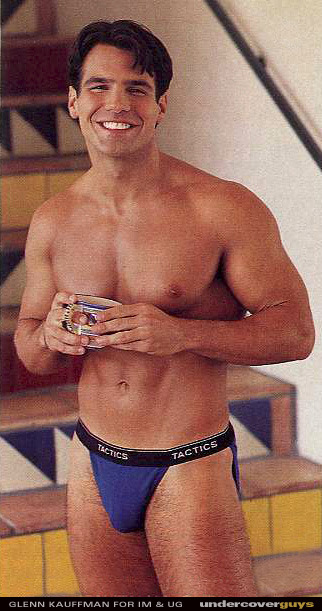
Glenn Kaufman. Fitness model and IM & Undergear model in a Tactics sport brief.
43 notes
·
View notes
Photo
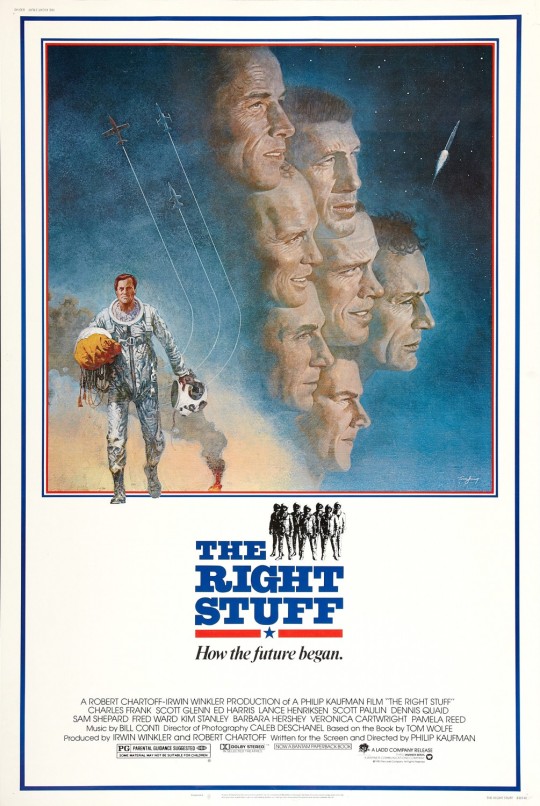
#the right stuff#charles frank#scott glenn#ed harris#lance henriksen#scott paulin#dennis quaid#sam shepard#fred ward#kim stanley#barbara hershey#veronica cartwright#pamela reed#philip kaufman#1983
32 notes
·
View notes
Photo
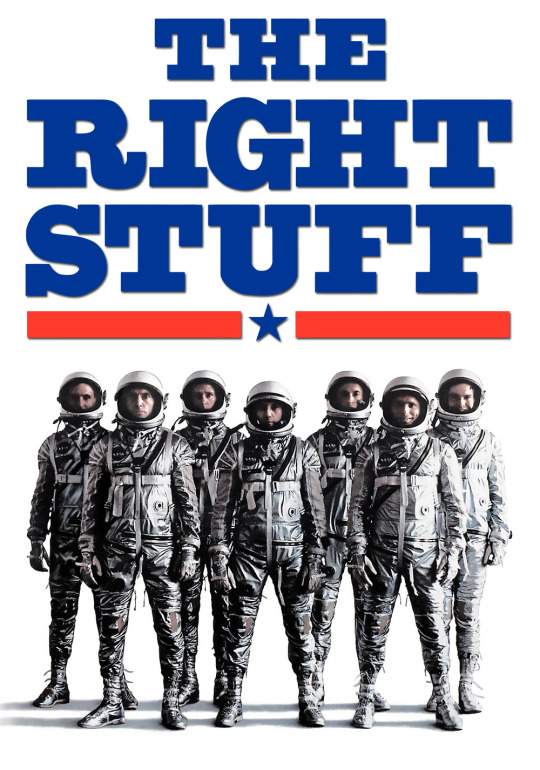
Recommendation of the week: The Right Stuff (1983)
Dir.: Philip Kaufman
Cast: Scott Glenn, Ed Harris, Barbara Hershey, Dennis Quaid, Pamela Reed, Sam Shepard, Kim Stanley, Fred Ward, Veronica Cartwright, David Clennon.
Genre: Adventure
Plot: Chuck Yeager was an intrepid test pilot who broke the sound barrier piloting an X-1. Despite this, he never achieved the fame achieved by the first astronauts who formed the crew of the Mercury, the first spacecraft: Shepard, Grissom, Glenn, Carpenter, Schirra, Cooper and Slayton.
Filmphilics score: 7'5/10
#the right stuff#philip kaufman#scott glenn#ed harris#barbara hershey#dennis quaid#pamela reed#sam shepard#kim stanley#fred ward#veronica cartwright#david clennon#adventure#adventure film#adventure movies#cult movies#cult film#cult cinema#cinema#film#movie
16 notes
·
View notes
Photo
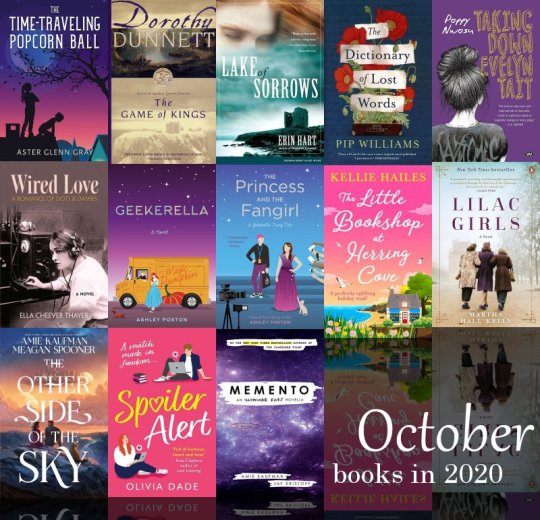
Books read in October
I read a paperback book for the first time in over three months months and was sharply aware that I couldn’t change anything about the way the text was displayed to make it more comfortable to read. I wondered, sadly, if I no longer like reading physical books.
Then I became engrossed in the story, and there were long stretches of time when I didn’t think about how I was reading a brick of printed paper. I turned pages as automatically and effortlessly as breathing. I think I was just out of practice.
This month’s Unintentional Colour Scheme: pink, purple and light blue.
Favourite covers: The Time-Traveling Popcorn Ball and The Other Side of the Sky.
Also read: “Good Neighbors” by Stephanie Burgis and Tiny House, Big Love by Olivia Dade. (And half a romance novel which I disliked and have no interest in remembering or reviewing.)
Reread: The last section of The Beckoning Hills by Ruth Elwin Harris. The middle section of Hunting by Andrea K. Höst.
Still reading: Between Silk and Cyanide by Leo Marks, and Angel Mage by Garth Nix.
Next up: The Switch by Beth O’Leary, and Hamster Princess: Little Red Rodent Hood by Ursula Vernon.
*
The Time-Traveling Popcorn Ball by Aster Glenn Gray: A magical story of time-travel and of friendship between eleven year old Piper, who has just moved into a new house, and Rosie, who lived in the same house fifty years earlier. It’s totally charming, and exactly the sort of story I adored growing up. Sometimes that makes me wish I could send a book back in time to my younger self, but I appreciated this book’s references to things that my younger self didn’t know about. I also appreciated how, even though I’ve read similar stories, I couldn’t predict how this one would end. That was very satisfying.
The Game of Kings by Dorothy Dunnett: In 1547, Francis Crawford, the Master of Lymond, wanted by the Scottish government for treason, is back in Edinburgh. The audiobook was the perfect way to experience this! The voices the narrator uses highlights clues in the text, about who’s speaking or the subtext and emotional tones of a conversation, which helped me to follow the story even when I felt confused about exactly what was going on. I enjoyed the Scottish accents, the clever wit, the ambiguity about Lymond’s plans and motives, and the way many characters are very intelligent, perceptive people. I was interested in the historical political intrigue. I loved the twists and revelations, which are brilliant -- incredibly clever and satisfying.
“Good Neighbors” by Stephanie Burgis: The first “fantasy rom-com” about a grumpy inventor who, along with her father, moves into a cottage nextdoor to a notorious necromancer in his big black castle. I wasn’t expecting to read about Mia stitching up undead minions, but appreciate that Burgis doesn’t take this opportunity to give glory details. This short story was fun and satisfying, and I am looking forward to when the rest of this series becomes (easily) available.
Lake of Sorrows by Erin Hart: After Haunted Ground, Dr Nora Gavin heads to the midlands west of Dublin to oversee the evacuation of another body discovered in a peat bog. The setting is fascinating and I like the atmosphere -- this has a strong sense of both place and mystery. However the multiple murders meant there’s more unpleasantness than I’d prefer. But it’s probably not enough to deter me from reading the next book.
The Dictionary of Lost Words by Pip Williams: Engrossing -- a poignant story of childhood during the late 19th century and womanhood in the early 20th century, and an absolutely fascinating insight into the decades-long process behind the first Oxford English Dictionary. Esme’s father is one of the lexicographers collecting and defining words for the Dictionary. Esme grows up with a fascination for words and begins to collect words that the Dictionary leaves out. I liked that Esme has people in her life who love and support her, but the ending is intensely sad. I’m not sure why that disappointed me. As an ending, it fits this story.
Taking Down Evelyn Tait by Poppy Nwosu: Australian YA. Lottie is furious that no one else seems to realise what Evelyn Tait, her nemesis (and stepsister) is like. Her best friend Grace is in love with Evelyn. Her teachers and her father tell Lottie she should emulate Evelyn. So Lottie decides that she’s going to do just that -- she’s going to be better than Miss Perfect. I thought this was a very realistic portrayal of a teenager’s relationships -- with family, with friends, with school and with herself. It’s amusing and, ultimately, believably positive. It captures Lottie’s perspective and her experiences in-the-moment so effectively and intensely.
Wired Love: a romance of dots and dashes by Ella Cheever Thayer (1888): Nattie, a telegraph operator who chats whenever she can “over the wire” with C., another telegraph operator miles down the line. I love stories where characters fall in love through exchanged messages. And the experiences of telegraph operators is absolutely fascinating -- simultaneously a product of the past and yet incredibly relatable from a contemporary perspective, because the internet and mobile phones mean we communicate so much through text. After Nattie and Clem meet, the focus shifts away from the telegraph office to antics at their boardinghouse, but the story continues to be fun and delightful.
Once Upon a Con series by Ashley Poston:
Geekerella: When Elle discovers her late parents’ cosplay costumes in a box in the attic, she hatches a plan to enter a cosplay competition and use the prize to escape her step-family. This contemporary Cinderella retelling about two teenage fans of a SF series Starfield is a romance-through-messages story. Elle uses her father’s old phone, so sometimes she gets messages from people about ExcelsiCon, the convention her father founded. One message sparks a conversation -- but neither she nor Darien realise just who they’re texting. As expected, this is fun and fandom-y, and it makes the coincidences and Cinderella moments feel believable.
The Princess and the Fangirl: At ExcelsiCon, Starfield actress Jessica Stone swaps places with a fan, Imogen. Jess needs to find a mislaid script before she’s accused of leaking it, and Imogen hopes for an opportunity to promote the #Save Amara initiative. I enjoyed how they both experience a different side of fandom. Imogen discovers the pressures of being a star, when con appearances are your job, and, away from the spotlight, Jess discovers how cons allow people to come together and celebrate things they love. My only disappointment was the way they both deceive Imogen’s fandom friend, Harper. I wish that had been handled differently.
The Little Bookshop at Herring Cove by Kellie Hailes: Unlike other books I’ve borrowed because they had “bookshop” in the title, this didn’t focus very much on books, nor did it describe its bookshop vividly. Sophie could have easily owned a different sort of shop without changing the plot, the setting or the atmosphere. This is a light-hearted romance about nice people in a generic seaside town -- not what I was looking for. I wanted more about books and a stronger sense of place.
Lilac Girls by Martha Hall Kelly (narrated by Cassandra Campbell, Kathleen Gati and Kathrin Kana): This begins with three different women at the start of WWII -- a teenager in Poland, a newly-graduated doctor in Germany and a wealthy consulate worker in New York -- and becomes about the Ravensbruck Rabbits, Polish political prisoners subjected to medical experimentation. Not what I expected or wanted to be reading (which is not its fault. I switched to the ebook, because I'm irrationally squeamish about some medical things and cope better when reading to myself). This story is compelling and does a good job of showing how the pain and trauma didn’t just end with the war. And it’s incredibly important to keep telling stories about distressing parts of history.
The Other Side of the Sky by Amie Kaufman and Meagan Spooner: More or less the sort of story I expected from these two. Nimh is the Divine One in a world of magic and prophecy. North is a prince in a floating city of science and engineering. Nimh believes the gods fled into the sky thousands of years ago, and North believes no one still lives down on the surface… until he crashes his glider. I enjoyed this but don’t feel any emotional investment -- yet. I will read the sequel.
Spoiler Alert by Olivia Dade: April and Marcus keep fandom separate from their professional lives -- April to avoid negative comments, Marcus (an actor) to avoid violating his contract. So when Marcus sees a cosplay photo of April online, he doesn’t recognise his friend, he just sees a gorgeous woman getting nasty comments and invites her to dinner. I was hooked. As a romance, this didn’t always focus on the things I most wanted it to, but I understood why it made those narrative choices and liked how the characters resolved their mistakes. And I really liked it as a story about fanfiction and the way we tell stories in response to other stories.
Big Love, Tiny House by Olivia Dade: Lucy goes on a Tiny House Hunting show and drags along her best friend Sebastian. I’ve watched countless tiny house videos on Youtube, so it was fun to see tiny houses depicted in fiction -- although I was disappointed that all the houses are so disastrously bad. Beyond that, I have no strong feelings one way or another about this romance novella.
Memento: an Illuminae Files novella by Amie Kaufman and Jay Kristoff (narrated by a full cast): A bonus prequel, set aboard the Alexander prior to the events of Illuminae. The audiobook is so well done! Even though this is a short story/novella, I cared about the new characters it introduces -- I really like the epistolary format and how it requires the reader to fill in some of the gaps for themselves. (I think that’s part of why I love The Illuminae Files but so far have no strong feelings about Kaufman and Kristoff’s latest series.) And it’s always interesting to see more of AIDAN.
#Herenya reviews books#Aster Glenn Gray#Dorothy Dunnett#Erin Hart#Pip Williams#Poppy Nwosu#Ella Cheever Thayer#Ashley Poston#Martha Hall Kelly#Amie Kaufman#Meagan Spooner#Jay Kristoff#Olivia Dade#Stephanie Burgis
8 notes
·
View notes